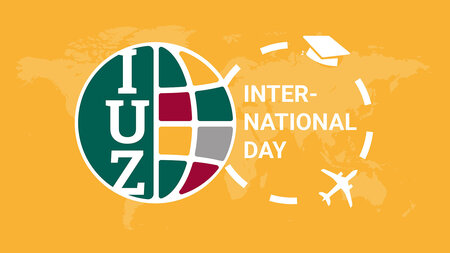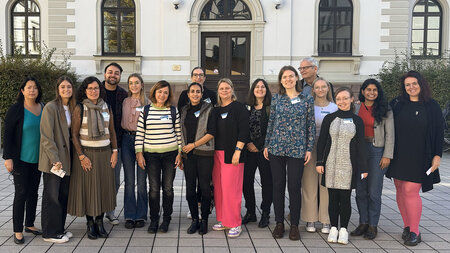Historical Grades for Researching the History
Manuel Fleischer completed his Master`s degree in European History at TU Chemnitz with an overall grade of 1.1
-

Monument to the Fallen Officers and Soldiers of the 134th Infantry Regiment stands as a symbol of two works that has been written by Manuel Fleischer on the topic. Photo: private
A graduate of TU Chemnitz achieves something that remains wishful thinking for many students: a university degree with nearly top grade. Manuel Fleischer studied European History at Technische Universität Chemnitz. Both in his bachelor and master studies, Manuel Fleischer obtained outstanding achievements and now strives for a doctorate. Thereby, his life is as colorful as the facets of the past. Manuel Fleischer, who was born in Plauen has been previously studying Industrial Management and Engineering nearly four years in Zwickau, but gave up his studies before the last examination. ”That was nothing special for me, I`m not an engineer“, says Fleischer. During his subsequent appointment at the temporary employment agencies, Manuel Fleischer gathered experience and collected enough money to start a second degree. In the course of this study program, he learned various industries such as agriculture and forestry, recycling or printing industry in the Vogtland region.
In the age of 27, Fleischer finally took up his dream study program in European History and discovered for himself the issue of the interaction between the city and military. In the final paper, Manuel Fleischer devoted himself to the suggestion of his supervisor Dr. Hendrik Thoß concerning the Plauen Infantry Regiment. ”I was immediately thrilled, even though it is a subject which has not previously been adopted by anyone. This meant for me a large research field and lots of effort. But Dr. Thoß was constantly endeavor to cover the many of my knowledge gaps and took me under his wing. I can say that Dr. Hendrik Thoß truly is one of the best university lecturers I know. He was my trustworthy person and a personal mentor in one“, recalls Fleischer. For this extensive research work the graduate required almost eight months. He often stayed in the Vogtland Library in Plauen or at the Dresden Central State Archive and investigated the entire records that deal with the 134th Infantry Regiment.
During his investigation, Fleischer discovered many parallels to the current days. He repeatedly met with the fate of individuals who, at large, also had an effect on the economy. Thus, in July 1918 happened a massive explosion in a former munitions factory with enormous proportion of women in the suburb village of Plauen called Neundorf. There had been killed over 300 girls and young women. ”Suddenly, across the area were no more descendants. This issue has affected me greatly. Such histories must never be forgotten“, said Fleischer. Therefore, the young historian often gives lectures on the events of that time, takes part in the conferences and is working in honorary capacity in various associations. In the framework of his eight-week internship in the bachelor program, Fleischer came upon the association `Dialogue with Böhmen e.V.´, where he is still active today. In addition, he is active in the Vogtland Museum, which houses the most comprehensive collection of the regional history and culture of Plauen. His personal goal is at the same time classy: ”I wish to contribute privately and professionally that each person learns from the history. I hope that I will be able to get something moving in the minds of the people and to reach out to them.“
At the moment, the 34-year-old writes applications for historical research. Manuel Fleischer applies himself at the universities, museums and in foundations Germany-wide and in German-speaking countries. Unfortunately, so far inconclusive, because the competition is great and the free places are scarce. Nevertheless, Fleischer is glad to have taken the step of termination of the first course of studies and having turned to the history. “One should pursue his dreams and never be fooled by talks of others. Even not with such a significant thing as the choice of field of study“, he said.
(Author: Katharina Preuß, Translation: Nataliia Boiko)
Katharina Thehos
22.09.2014





